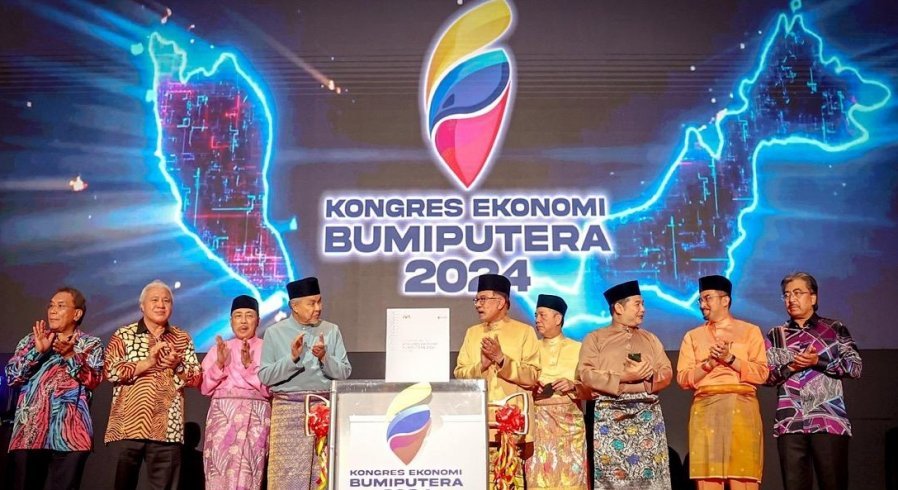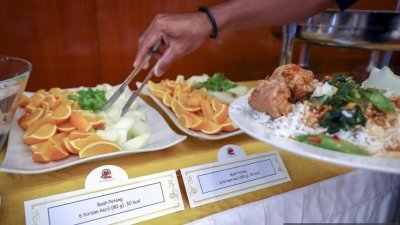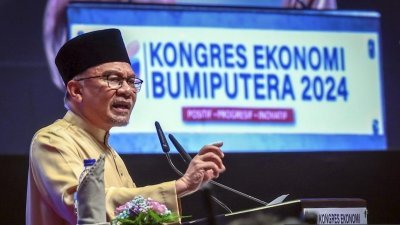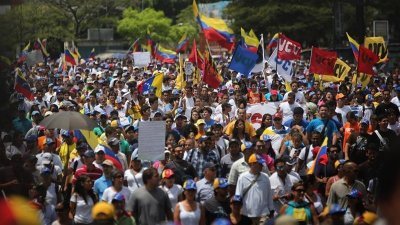在上周文章中,我提出了一个问题:首相安华能否重塑土著议程结构?
随著上周举行的土著经济大会后,答案是:这可能性很小。
早前,首相安华在公布土著经济大会时曾指,在解决土著经济问题时,会采取更具包容方法,这将有助于解决影响其他社群的问题。
“我希望中总准备好讨论(此类问题),因为更具包容的方式意味著,在谈论土著经济时,涉及中小型企业或印裔社会穷人的问题将被一起解决。”
然而,大会上主要的马来主讲者似乎忽视了首相的呼吁。
土著经济转型
大马交易所主席阿都瓦希,曾是首相署负责经济规划的前部长,他不仅呼吁提供更多援助来帮助土著企业。他提议引入公平机会法,以确保所有国民都能公平地获得工作和商业机会。
依据他的说法,如果该政策在私人界实施,可以促进商业和企业的竞争,尤其这些领域的各族拥有权存在著不平衡的局面。
然而,阿都瓦希没有提及,就业最不均衡和不公平的领域就是公共部门。任何新的立法都应适用于公共和私营部门。
副首相扎希则呼吁实施新的土著经济转型计划(TEB),他声称这将使所有马来西亚人受益。
巫统主席提出的土著经济转型计划三个宗旨为,国家通过拨款,帮助低收入土著获得教育和医疗服务;提高土著在农业工业领域的参与;成立土著土地公司以提高土著的土地拥有权。然而,没有一项是援助非马来人的。
依据副首相的说词,“这三个宗旨是要确保国家政策和经济议程的实施,不仅保障土著的参与和权利,同时也确保与非土著的协同作用。”
“无论喜欢与否,无论愿意与否,种族之间的协同作用对于刺激经济活动极其重要。”他说。
虽然新议程是亲土著的,但阿末扎希保证非土著的权利将受到保护。相信大会上没有多少人会相信他的保证。
安华在闭幕词中概述了三项决议,以推动社会各阶层的愿望。
这涉及加强国家经济支柱、提升治理和国家机构能力,以及维护社会正义。
“加强国家经济支柱的决议,必须专注于几个关键驱动因素,包括增强竞争力、扩大规模、改善和维持股权结构、创造财富、培养人才、增加收入和消除赤贫。”
他进一步宣布,大会的所有决定和讨论将被考虑转化为新的土著赋权议程,该议程将含盖未来10年发展,并于6月推展。
同时,安华也批准了10亿令吉作为培养土著企业家的计划。
他说:“土著最大的弱点是(缺乏)新一代企业家……因此,我将透过官联公司和官联投资公司设立一个大基金,专用于培养和发展新一代土著企业家。10亿令吉已获批准。”
他还批准了10亿令吉的小额信贷,以帮助土著微型和小型企业,他说这将优先考虑女性、青年和退伍军人创业。
首相也一样在大会上没为非土著提供任何小额信贷援助。
马来西亚人经济大会
对大会的反应,提出最具包容和前瞻者,应是前首相署部长再益依布拉欣,他呼吁举办马来西亚人经济大会,寻求解决与经济、治理和腐败相关课题的方案。
再益在脸书上发帖说:“土著经济大会结束了,这让人松了口气。让我们祈祷不会再有另一场土著大会。”
“我们需要的是马来西亚人经济大会。一个认真看待国家问题,并寻求解决方案,真正代表所有马来西亚人的大会。”
这位前法律部长以渔民困境为例指出,自1970年以来,当局在渔业领域拨出了近800亿令吉款项,但仍有超过10万名渔民属于最贫困的一群。
再益也表示,一些经济学家预计,过去40年,马来西亚因腐败而损失了2.6兆令吉。
“对一两个超级富豪家族涉嫌腐败展开调查,并自欺欺人地认为自此一切都安好?我们的体制就干净了?”
“人们想知道体制的漏洞在哪里,以及如何防堵,让国家恢复平稳。”
他说,由于《官方机密法》保护下,无法取得政府报告和数据,无数问题仍然被隐藏起来。
“我们需要召开一个真正能解决我们困境的大会,而非一个议决还没读出,就已决定端出20亿令吉或更多的方案。”
“我们需要一个能通过仔细的审议,找到深思熟虑解决方案,从而制止大规模贪腐行为的大会。”
再益表示,人民和领导人必须更加认真地对待国家的问题并“开始提出质疑”。
“我们的领导人必须愿意改变浮夸的方式,放弃失败的解决方案。请更认真地对待人民的问题。”
林德宜《土著经济大会依旧陈腔滥调》原文:Bumiputera Economic Congress: Same Old Stuff
In an earlier article I asked the question: Can PMX Reinvent the Bumiputera Construct
The answer following the latest Bumiputera Economic Congress held last week is: very unlikely.
When announcing the event, PM Anwar Ibrahim noted that a more inclusive approach in addressing the Bumiputera economy would lead to resolving issues affecting other communities.
“I hope ACCCIM is ready to discuss (such issues) because a more inclusive approach means that, in talking about the Bumiputera economy, issues involving small and medium-sized enterprises or the poor among the Indian community will be addressed together.”
However the leading Malay speakers appear to have ignored his call.
Transformasi Ekonomi Bumiputera (TEB)
Bursa Malaysia Bhd chairman Abdul Wahid Omar, a former minister in the Prime Minister’s Department in charge of economic planning, not only called for more assistance to help Bumiputera businesses. He proposed the introduction of an Equitable Opportunity Act to ensure that all citizens are given a fair shot at jobs and business opportunities.
According to him, if the policy is implemented in the private sector, it can foster competition in the business and corporate sectors, where its ownership is imbalanced among communities.
He failed to mention that the sector where the greatest imbalance and unfairness in employment is to be found is in the civil service. Any new legislation should be made to apply to both public and private sectors.
Deputy Prime Minister Zahid Hamidi called for a new Bumiputera Economic Transformation Initiative (TEB) which he claimed would benefit all Malaysians.
Among the Umno president’s three main pledges in TEB is a national endowment to help lower-income bumiputera access education and health services; raising bumiputera participation in industrialisation of the agricultural sector; and the establishment of a bumiputera land corporation to boost land ownership among the community. Nothing at all to help the non Malays.
According to him “These three main goals are to ensure that policies and implementation of the country’s economic agenda not only ensure the involvement and rights of the bumiputera, but at the same time, ensure that there is synergy with the non-bumiputera,”
“Like it or not, willing or not, synergy between the races is extremely important in stimulating economic activity,” he said.
While the new agenda is pro-bumiputera, Zahid gave the assurance that the rights of non-bumiputera would be protected. Few in the Congress meeting hall will be convinced by his assurance.
In his closing speech, PM Anwar outlined three resolutions to drive the aspirations of all segments of society.
They involve efforts to strengthen the country’s economic pillars, enhance governance and the country’s institutions and uphold social justice.
“The resolution to strengthen the country’s economic pillars must focus on several key drivers, including enhancing competitiveness, increasing scaling, improving and maintaining equity ownership, creating wealth, developing talent, increasing income and eradicating hardcore poverty.
He further announced that all decisions and discussions from the congress would be looked into to be translated into the New Empowerment Agenda for Bumiputeras, which will be formulated for the next 10 years and is be launched in June.
Meanwhile he approved RM1 billion to fund projects aimed at creating a Bumiputera entrepreneurial class.
According to him, “The biggest weakness of the Bumiputera is the new generation of entrepreneurs ... .Thus, I shall delegate through GLCs and GLICs the setting up of a big fund specifically for the realisation and development of a Bumiputera entrepreneur generation. RM1 billion is approved.”
He also approved a billion ringgit in micro credit to help Bumiputera micro and small businesses, which he said would prioritise women, youths and armed forces veterans venturing into business.
The Prime Minister failed to offer any micro credit assistance to the non Bumiputeras.
Zaid Ibrahim Call for a Malaysian Economic Congress
The most inclusive and forward looking feedback to the Congress has come from former federal minister, Zaid Ibrahim, who called for a Malaysian Economic Congress to find ways to resolve issues related to the economy, governance and corruption.
"It's a relief that the Bumiputera Economic Congress is over. Let's pray we will not have another one ever again," said Zaid in a Facebook post.
"What we need is a Malaysian Economic Congress. An honest congress representing all Malaysians who are serious about finding answers to the country's problems."
The former law minister cited the example of the plight of fishermen.
He said since 1970, close to RM80 billion had been spent on the fisheries industry yet over 100,000 fishermen were among the poorest in the country.
Zaid also said some economists projected that Malaysia has lost RM2.6 trillion due to corruption over the past 40 years.
"Is it enough that we commenced an investigation into one or two super-rich families for alleged corruption and deluded ourselves that everything from now is okay and our system is squeaky clean?
"The people want to know where the sources of the leakages are and how to plug them and put the country back on an even keel."
He said there were countless problems which remain hidden due to a lack of access to government reports and data protected by the Official Secrets Act.
"We need a congress where the answers to our woes are not predetermined by dishing out RM2 billion or more, even before the resolutions are read.
"We need a Congress where thoughtful solutions are found through careful deliberations so that large-scale pilferage can be stopped."
Zaid said the people and leaders must take the country's problems more seriously and "start asking questions".
"Our leaders must be willing to change their flamboyant ways and discard failed solutions. Please take the problems of the Rakyat more seriously.”
要看最快最熱資訊,請來Follow我們 《東方日報》WhatsApp Channel.


















